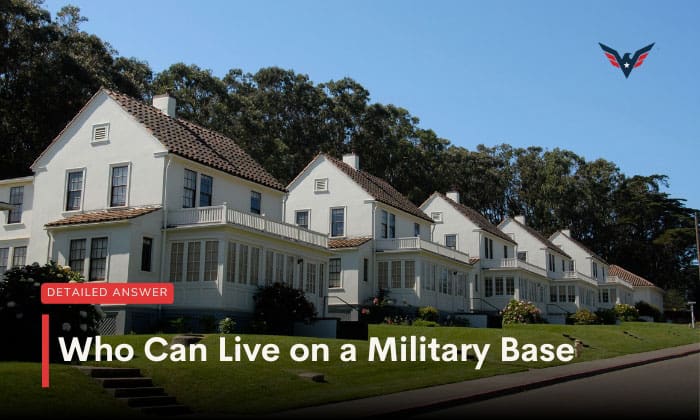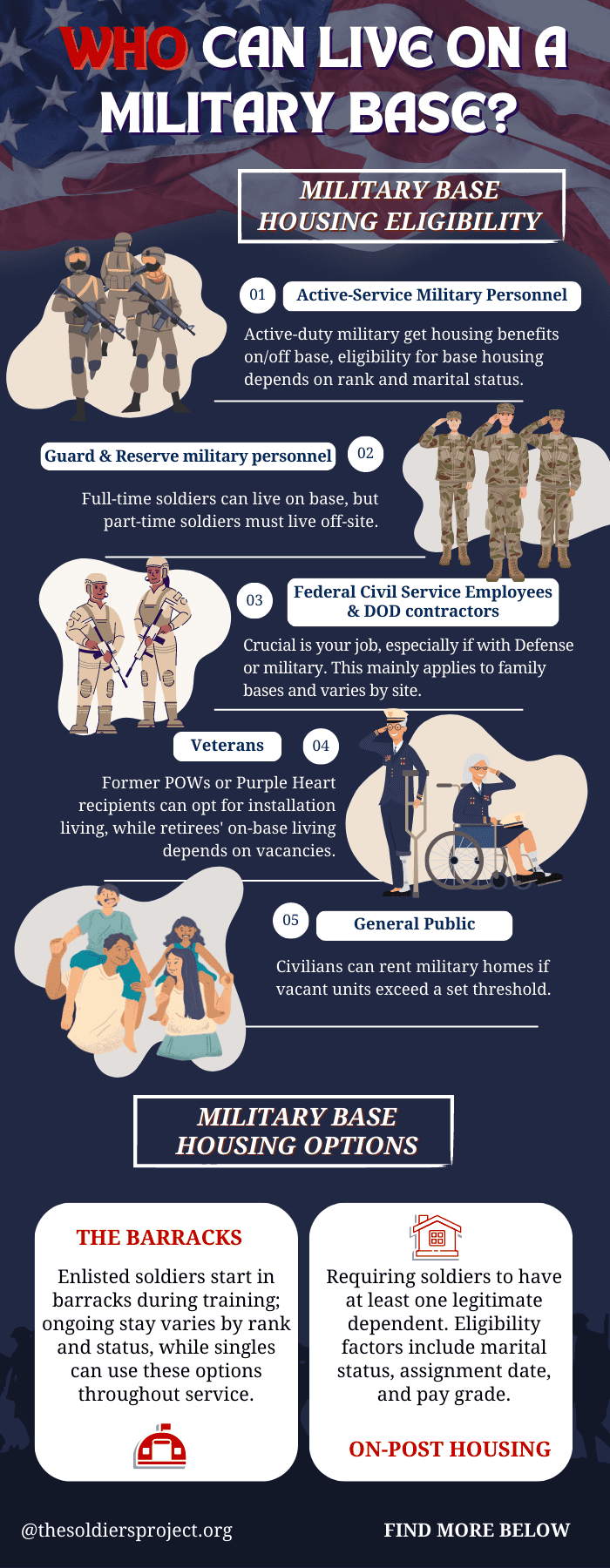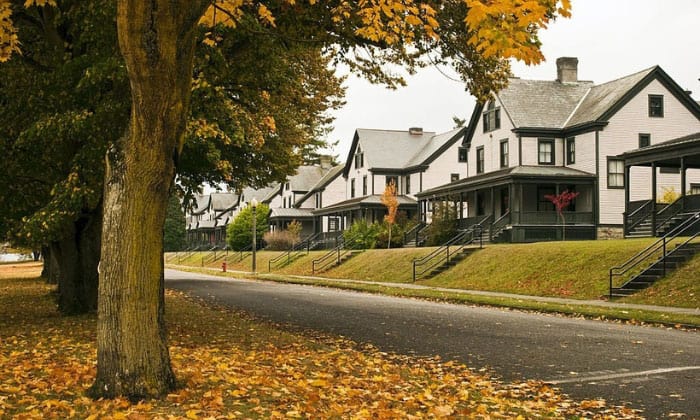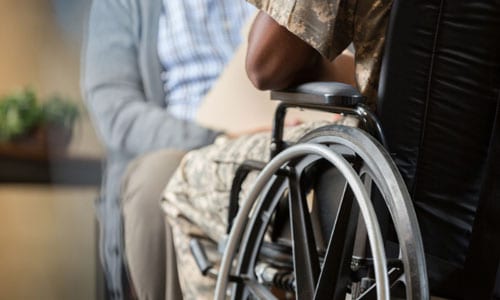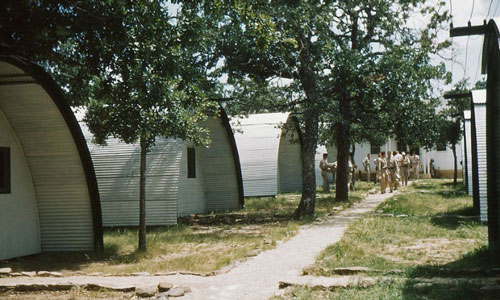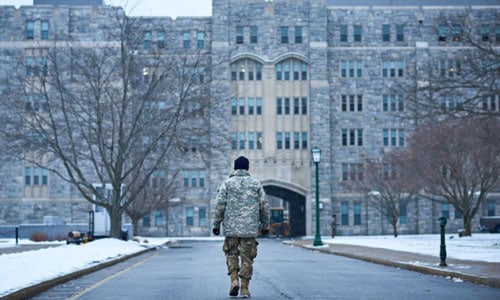Soldiers selflessly leave loved ones to protect our country and nurture peace. With the military’s support, soldiers gain housing incentives to serve as a small token of gratitude for their selfless service. These incentives enable them to find a place they can call home, ensuring they have a place where personal growth and enjoyment flourish.
Discover who can live on a military base. Learn about how active soldiers, veterans, civilians, and military-married couples with their dependents gain the opportunity to reside in on-base housing.
Table of Contents
Who is Eligible to Apply for Base Housing
Learn about the benefits available to individuals who serve their nation, including the ability to live on military bases.
1. Eligibility Criteria for Military Base Housing
What are the requirements to reside on a military installation? The government has established specific criteria for determining eligibility and welcoming individuals into their esteemed community.
Familiarize yourself with the guidelines to ensure a smooth transition and adherence to the rules for living on a military base.
1. All active-service military personnel
Active-duty military men receive housing privileges, whether stationed on or off base. However, your eligibility to live on an army installation depends on variables such as rank and personal circumstances, such as not being single.
2. Guard and reserve military personnel
The Army National Guard has a multifaceted obligation, including community and national service. At any point, the state governor or the federal government can summon them for a mission.
On the other hand, Reserve Soldiers do not have a state-specific mission. Therefore they are not mobilized for rescue and relief response missions.
However, both can actively enlist for full-time duty to assist Army combat objectives.
These soldiers serving in a permanent capacity can officially reside on base. However, it is valuable to note that part-time soldiers can not live on military sites and have the freedom to reside in their independent homes.
| Note:
Dependents and Military spouses of Priority #1 and #2 can reside with the service members in on-base family housing. However, non-dependents such as parents and siblings are not eligible to live on the installation. Nevertheless, they still have the privilege to visit the service member. |
3. Federal Civil Service Employees and DOD contractors
Living on a military base as a Federal Civil Service Employee and DOD contractor is possible, but it is contingent upon several factors.
A significant factor is your employment, specifically, if you work for the Department of Defense or a military department, as well as the army base’s capacities.
It is important to note that this opportunity typically applies to military bases for families and may vary depending on the specific site.
I suggest scoping out these Quora conversations to gain more latest data and personal experiences: Quora Thread #1 and Quora Thread #2.
4. Veterans
Those former Prisoners Of War or Purple Hearts recipients can have the option to live on an installation. Military bases allow retirees to live on base, but this depends on the vacancies.
These Retired military members, on the other hand, have more alternatives because they may live and retire in any part of the world.
The 100 disabled veterans are also eligible to live on military bases. However, this is dependent on the availability of vacant housing.
Military retirement homes become an alternative housing option for these retirees if no unoccupied homes are available.
Additionally, veterans are eligible for an allowance, and assistance from the VA categorically provided for housing for retirees, ensuring suitable accommodations for veterans with a 100% disability rating.
5. General Public
Thanks to the base housing privatization, the general public can go to a military house rental if they want to. However, these civilian housing on military bases is only feasible if the number of unoccupied residences exceeds a particular threshold.
This possibility arises when higher priority service members (#1-4) have their housing needs met, and the local base housing business cannot recruit enough service members.
Civilians may be able to inhabit the remaining military base houses.
You can refer to this fact sheet for detailed insights.
2. Housing Options on Military Bases
The military provides various housing options for its members, including Barracks, On-post housing, Off-post housing, and purchasing a house.
However, when it comes to on-base housing, there are only two available choices. Let’s go deeper into on-base housing to have a better grasp.
1. The Barracks
Enlisted soldiers must reside in the barracks. The barracks accommodate all military members during the initial job and basic training.
However, the determination of whether a member continues living there afterward depends on their rank and status. For singles, these housing options remain available throughout their military service.
Single soldiers, Marines, and Army ranked E-5 and below, as well as Navy personnel in pay grades E-4 and below, stay in unit-assigned dorms or barracks.
Similarly, Air Force troops with fewer than three years of active duty and pay grades up to E-4 also reside in the barracks.
Check this video to understand what living in the barracks entails.
2. On-Post Housing
These accommodations are also known as on-base family housing. To be eligible for this type of housing, soldiers must have at least one legitimate dependent to reside with them.
Typically, factors such as marital status, assignment date to a specific base, and pay grade greatly influence the eligibility for living in this accommodation.
Additionally, the decision to allow soldiers to stay in on-base homes rests with the base commander.
In unfortunate circumstances where a member loses their life while in service, their dependents can reside in the housing for up to 365 days following the death while continuing to receive the housing allowance during that period.
Although you will find essential appliances in the housing, you can buy your own furniture.
Advantages and Disadvantages of Living on Base
We’ve listed the key pros and cons of living on a military base, offering valuable insights to help you decide if it suits your preferences and needs.
Advantages:
- Commissaries, on-base medical services, Exchange, and other amenities are all outside your door.
- Enjoy low-cost living with free yard maintenance (for some) and amenities such as gas, water, electricity, and trash collection.
- Feel a distinct and unparalleled sense of security on military sites, where armed guards stationed at every entry and trusted, thoroughly verified neighbors foster a safe and trustworthy community.
Disadvantages:
- Ensure that the exterior of your house and yard meet stringent maintenance standards requiring your compliance.
- Visiting family and friends without a valid military ID cannot access the base alone, necessitating your escort every time they come.
- While living on base offers incredible convenience with everything at your fingertips, it’s crucial to consider that becoming overly reliant on this lifestyle can make it difficult to adjust to civilian life when you eventually move outside the base.
Conclusion
In summary, we have explored who can live on a military base and their eligibility criteria, including soldiers, their families, veterans, and the general public.
We have also discussed the different housing options available within the military, which significantly impact the experience of living on a military base, like the barracks or dormitories and on-post housings.
Overall, it is evident that residing on a military base requires adherence to specific guidelines and considerations.

I am Everett Bledsoe, taking on the responsibility of content producer for The Soldiers Project. My purpose in this project is to give honest reviews on the gear utilized and tested over time. Of course, you cannot go wrong when checking out our package of information and guide, too, as they come from reliable sources and years of experience.

